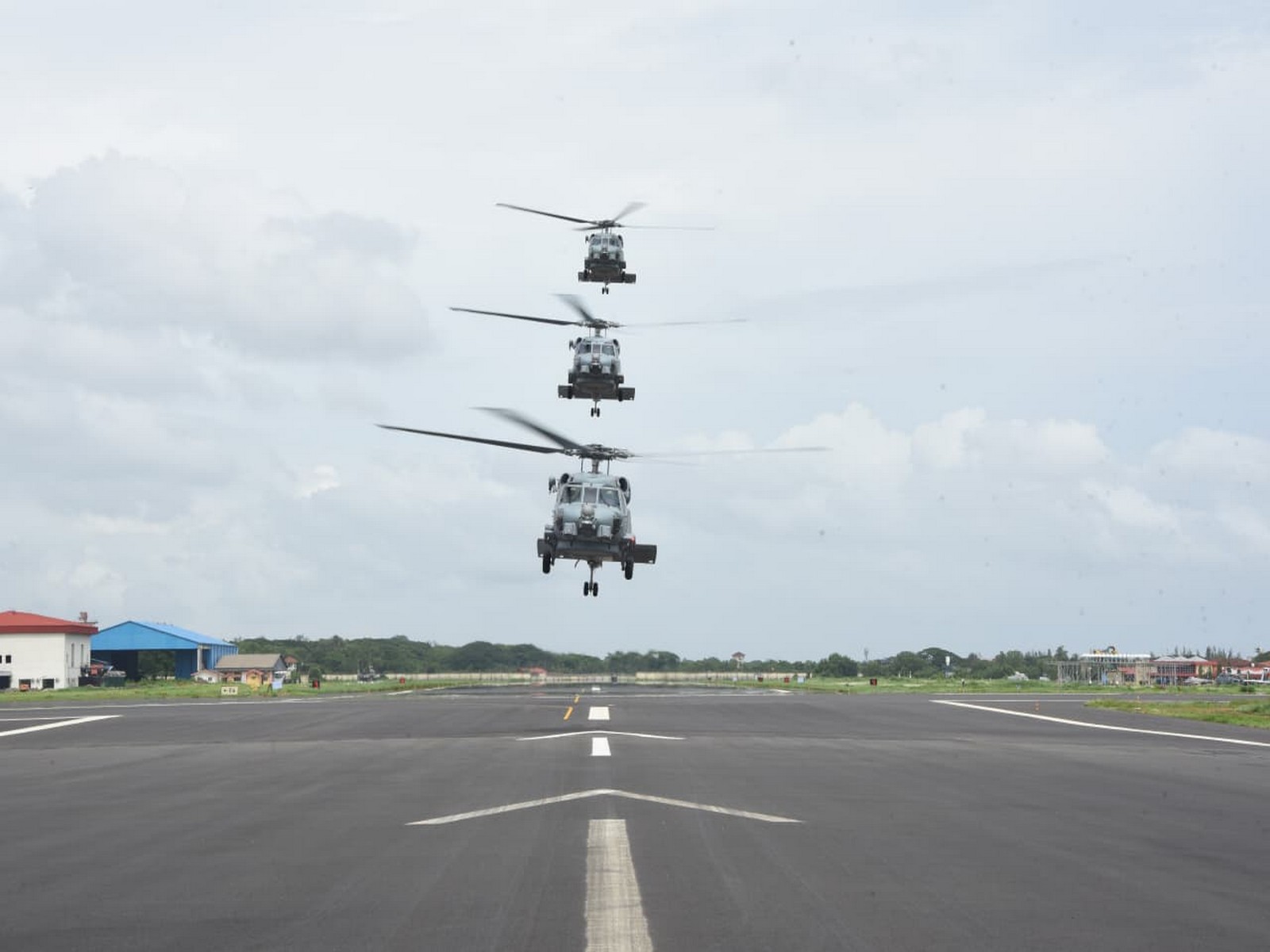Pak Army employed killer drones, rockets, loitering munitions to strike terrorist hideouts in Iran: ISPR
Jan 18, 2024

Islamabad [Pakistan], January 18 : The Pakistan Army released operational details of its strikes against militants in Iran, targeting hideouts used by terrorist organisations such as the Balochistan Liberation Army (BLA) and Balochistan Liberation Front (BLF), Geo News reported.
The operation, code-named "Marg Bar Sarmachar," aimed to neutralise terrorists responsible for recent attacks within Pakistan.
The Inter-Services Public Relations (ISPR), in a statement, emphasised the use of precision strikes, including killer drones, rockets, loitering munitions, and stand-off weapons, with a focus on avoiding collateral damage.
"The precision strikes were carried out using killer drones, rockets, loitering munitions and stand-off weapons. Maximum care was taken to avoid collateral damage," it said.
The military's media wing said it identified notorious terrorists utilising the targeted hideouts, including Dosta alias Chairman, Bajjar alias Soghat, Sahil alias Shafaq, Asghar alias Basham, and Wazir alias Wazi.
"Pakistan Armed Forces remain in a perpetual state of readiness to ensure the safety of Pakistani citizens against acts of terrorism," the statement added.
The ISPR stated that the armed forces' resolve to ensure that the sovereignty and territorial integrity of Pakistan are respected and safeguarded against any misadventure remains unwavering.
"We reaffirm our determination to defeat all enemies of Pakistan with the support of the people of Pakistan," it added.
The operation followed a reported violation of Pakistan's sovereignty by Iran, which launched a strike in Balochistan, resulting in the tragic deaths of two children and the injuries of three girls.
Pakistan's Ministry of Foreign Affairs confirmed a series of coordinated and targeted military strikes against terrorist hideouts in Sistan-o-Baluchistan province of Iran, under the codename "Marg Bar Sarmachar."
"This morning, Pakistan undertook a series of highly coordinated and specifically targeted precision military strikes against terrorist hideouts in the Siestan-o-Baluchistan province of Iran," the Ministry of Foreign Affairs said in a statement.
The Foreign Office accused Iran of unprovoked and blatant breaches of Pakistan's sovereignty, describing it as a violation of international law and the United Nations Charter. Pakistan had previously expressed concerns to Iran about safe havens and sanctuaries for Pakistani-origin terrorists inside Iran. Despite sharing multiple dossiers with concrete evidence, there was a lack of action, allowing these terrorists, known as "Sarmachars," to continue attacks on innocent Pakistanis.
"Last night's unprovoked and blatant breach of Pakistan's sovereignty by Iran is a violation of international law and the purposes and principles of the Charter of the United Nations," FO Spokesperson Mumtaz Zahra Baloch said in a statement on Wednesday.
The military operation was a response to credible intelligence indicating impending large-scale terrorist activities by these groups.
"This morning's action was taken in light of credible intelligence of impending large-scale terrorist activities by these so-called Sarmachars," read the statement.
Pakistan asserted its unflinching resolve to protect national security and defended the professionalism of its armed forces in executing the complex operation.
"The successful execution of this highly complex operation is also a testimony to the professionalism of the Pakistan Armed Forces. Pakistan will continue to take all necessary steps to preserve the safety and security of its people, which is sacrosanct, inviolable and sacred," it added.
While emphasising respect for Iran's sovereignty, Pakistan clarified that its actions were solely in pursuit of its own security and national interests, which cannot be compromised.
"As a responsible member of the international community, Pakistan upholds the principles and purposes of the UN Charter, including the territorial integrity and sovereignty of member states. Guided by these principles and in exercise of our legitimate rights within international law, Pakistan will never allow its sovereignty and territorial integrity to be challenged under any pretext or circumstances," according to the statement.
Acknowledging Iran as a brotherly country, the Foreign Office stressed the importance of dialogue and cooperation to address common challenges, including terrorism.
"We have always emphasised dialogue and cooperation in confronting common challenges, including the menace of terrorism and will continue to endeavour to find joint solutions."
Escalating tensions led to Pakistan downgrading diplomatic ties with Iran, expelling the Iranian ambassador, and recalling its envoy from Tehran. Caretaker Prime Minister Anwar-ul-Haq Kakar cut short his visit to the World Economic Forum in Davos in light of the unfolding developments.
China, a close partner of both Iran and Pakistan, called for restraint and offered to mediate between the two countries. The United States condemned Iran's actions, accusing Tehran of violating the sovereign borders of three neighbouring countries. Iranian officials reported casualties, including seven individuals without Iranian nationality who were killed during Pakistan's missile attack.
As tensions escalated, Pakistan initiated strict monitoring of flights from the West, including Iran. The Civil Aviation Authority (CAA) began monitoring air activities over the western border, directing authorities to stay alert regarding all flights from the west. However, no decision had been made to close Pakistan's airspace to Iran, Geo News reported.


















